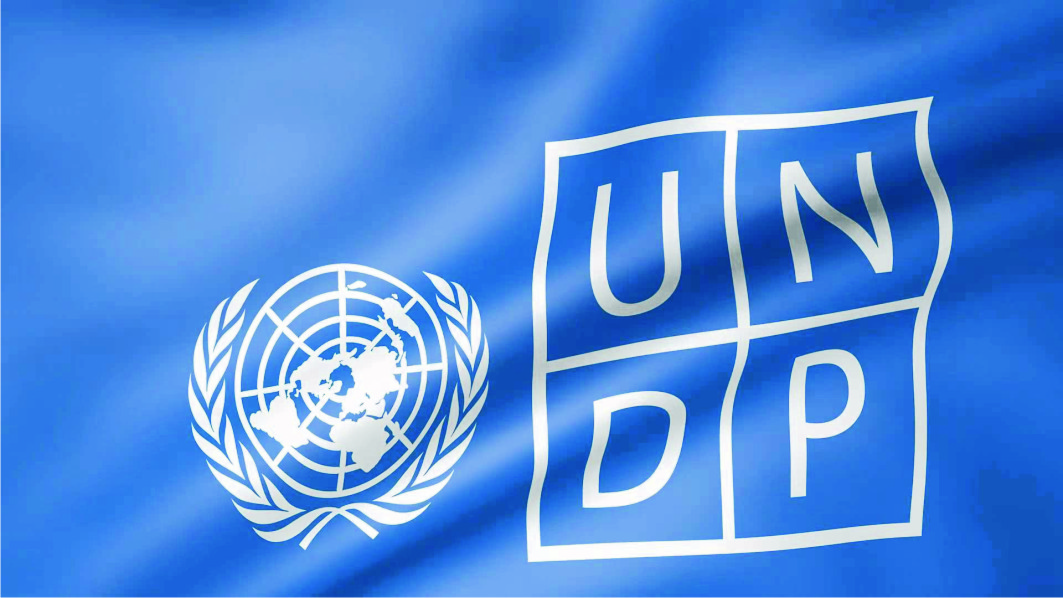Editorial
Fighting Corruption With Integrity

The United Nations has set aside today, December 9, as International Anti-Corruption Day. The occasion is observed annually. The day is commemorated to raise global awareness on corruption and the role of the UN in combating and preventing the scourge.
Bearing the theme: ‘’Recover With Integrity’’ which focuses on corruption as one of the biggest obstacles to achieving the Sustainable Development Goals (SDGs), people are goaded to work on innovative solutions to win the battle against this malaise and to ensure that resources serve everyone in the world.
Corruption is indeed a sophisticated social, political and economic phenomenon affecting all countries. It countermines democratic institutions, decelerates economic development and contributes to governmental instability. Corruption assaults the very basis of democratic institutions by impairing electoral processes, perverting the rule of law and creating bureaucratic impasse whose only reason for existing is to solicit for hush money.
UN statistics state that every year, $1 trillion is paid in bribes while an estimated $2.6 trillion are stolen annually through corruption – a sum equal to more than five per cent of the global GDP. According to the United Nations Development Programme, (UNDP), in developing countries, funds lost to fraud are estimated at 10 times the amount of official development assistance.
However, this year’s observance takes a different form from previous years because it addresses the unique challenges and opportunities in the fight against corruption contrived by the COVID-19 pandemic and the changes that need to be made to minimise corruption.
Corruption is unlawful, unscrupulous and the ultimate treachery of public trust. It is even more obnoxious in times of crisis as the world is experiencing now with the COVID-19 pandemic. The reaction to the virus is creating new opportunities to leverage weak intendant and inadequate transparency, diverting funds away from people in their hour of grand need.
Unfortunately, COVID-19 has uncloaked the vulnerabilities in health systems, procurement and public service consignment throughout the world as many cases of misappropriation of public funds, serious violations of contracting processes and maladministration have come to light.
The flinty consequences of corruption are more palpable than ever before in the current COVID-19 crunch. Corruption inhibits people from receiving medicine, vaccines, vital protection and treatment. It also denies healthcare workers of the much-needed medical supplies, including personal protective equipment (PPE).
These corruption hazards and many others in the health sector should be observed and mitigated through increased oversight and transparency, which remain essential to address malfeasance in the procurement and distribution of PPE. It will similarly promote the equitable access of safe and effective COVID-19 vaccines to the populations, particularly for the most vulnerable and marginalised groups.
In the private sector, many small and medium-sized companies hit hard by the pandemic, are uncertain if they can survive in these times of crises. While a good number of them get economic stimulus packages to cope with COVID-19 necessitated lockdowns, others are asked to offer bribes to get their packages. This is unacceptable. We think that transparency and oversight must not be exchanged for rapid response and impact.
Many nations are still taking dramatic measures to encase and mitigate the ravaging spread of COVID-19 by making large-scale acquisition of life-saving medical equipment and supplies. However, this health crisis has opened up revelatory opportunities for severe corruption in the procurement sector, which in many cases cause expansive damage.
To mitigate procurement-related corruption risks such as covert contracts, overpricing, and collusion, governments should publish all public contracts; use open and competitive bidding, and publish the names and beneficial ownership information of companies awarded contracts. Whistleblowers are equally key in this regard.
Also, in providing support donations to businesses impacted by COVID-19, there have been abuses of emergency business grants to enterprises that are not legally entitled to them. Fake companies emerge here and there that take advantage of the current situation or even organised criminal groups impersonate companies in need.
In the circumstances, we strongly advise that support must reach only those who are most in need. Responses must be done after due diligence and verification and under the oversight of possibly lawmakers, anti-corruption bodies, civil society groups and perhaps, the private sector association.
Sadly, in Nigeria, palliative items meant to be distributed to Nigerians were deliberately kept back by some state governors and politicians, several months after actual distribution began nationwide, leading to widespread looting of warehouses across the country. This is corruption and deserves to be sanctioned.
Reducing the risks of inefficiency and corruption during the COVID-19 pandemic requires the unification of strong anti-corruption bodies, better oversight over emergency support packages, more open and transparent public procurement and enhanced anti-corruption compliance by the private sector.
Additionally, countries also need to ensure support and protection for whistleblowers and journalists uncovering corruption during the pandemic as well as bring their national anti-corruption frameworks in line with the United Nations Convention Against Corruption (UNCAC). To recover with integrity, we must demand to stand united against corruption.
Editorial
As NDG Ends Season 2

Editorial
Beginning A New Dawn At RSNC

Editorial
Sustaining OBALGA’s Ban On Street Trading

-

 Education5 days ago
Education5 days agoElga boss tasks law students on academics strides
-

 News2 days ago
News2 days agoAmend Constitution To Accommodate State Police, Tinubu Tells Senators
-

 Politics2 days ago
Politics2 days agoSenate Urges Tinubu To Sack CAC Boss
-

 News2 days ago
News2 days agoDisu Takes Over As New IGP …Declares Total War On Corruption, Impunity
-
Business2 days ago
President Tinubu Extends Raw Shea Nuts Export Ban To 2027
-
Business2 days ago
Crisis Response: EU-project Delivers New Vet. Clinic To Katsina Govt.
-
Business2 days ago
President Tinubu Approves Extension Ban On Raw Shea Nut Export
-

 Business2 days ago
Business2 days agoPENGASSAN Rejects Presidential EO On Oil, Gas Revenue Remittance … Seeks PIA Review

